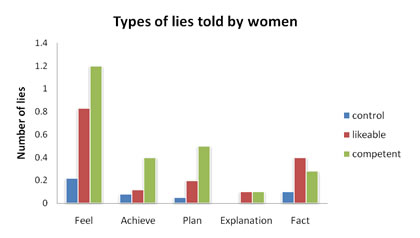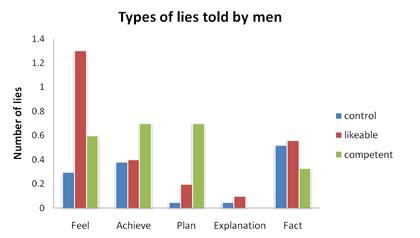A girl once said to me "I'm not interested in going out with you, but I'm really flattered that you like me". I of course responded "I'm not interested in you! You're so arrogant!" to which she responded "Ah, my mistake" ... I was interested in her, but that whole exchange allowed me to keep face and everything was okay. Although our friendship kinda ended, but I'm guessing that was largely because it was predicated on me fancying her.Lilani said:I did flirt with him a little bit at first too, but then I had a moment of clarity and realized I don't really like him that way.
I was a bit butthurt for a while (I look pretty fabulous, no-one else has ever turned me down, hell I don't even ask girls out; I'm very immodest), but I literally can't think of anything that she could have done any better in that situation. She was a very mature girl.
Sorry to burst your bubble, and the bubble of all those who've agreed with you, but science actually disagrees with the myth that women are experts at body language. Here's a post I made a while back that explains the prevailing thoughts in research:Lilani said:Thank you. That's sort of what I've noticed with the guy I like, come to think of it. I drop hints here and there, but he seems to just be oblivious. It's funny how women can be experts in the art of subtle hints, but guys go by and don't notice a thing >_>;Soylent Bacon said:Sounds like you've used the right words here. Just explain it to him the same way. If you try to be subtle about it, he might not take the hint.
(TL;DR: Women send out mixed and inaccurate body language and tend to lie about their true feelings (the latter point goes for both genders))
Well, it is of course sexist to predicate personality on gender, but with that out the way let's look at the reality:
Source: http://www.spring.org.uk/2009/06/why-men-prefer-direct-pick-up-lines.php
Wade et al (2009) had 40 men and 40 women rank pick up lines in order of effectiveness, both genders placed chat-up lines "in order of directness, with the most direct also perceived as the most effective ... The only surprise is the low ranking of funny or sexual humour. Men don't seem to appreciate the lewd come-ons suggested by gender stereotypes. This relatively low rating for a jokey approach is another thing shared by both sexes. Previous work by Bale et al. (2006) found that women weren't particularly impressed with men trying to be funny, despite what we are often told. It seems opening lines are a serious business for both sexes."
"Grammer et al. (2000) videotaped opposite sex pairs meeting for the first time to catch the nuances of body language in the first 10 minutes of an interaction. Afterwards women were asked how much interest they had in the man they'd been talking to. The researchers revealed two counter-intuitive results:
* In the first minute women behaved no differently to men they fancied than those they didn't. They sent many positive nonverbal signals to all the men and hardly any negative signals.
* It is only between the 4th and 10th minute that any correlation was seen between an increased sending of positive nonverbal behaviours and wanting to date the man. But even then the difference was only between some positive signals and slightly more positive signals. Again negative signals were very rare.
The reason men prefer a direct approach becomes clearer. Women may think they are sending out all the right nonverbal signals and may blame men for failing to pick up on them. But from a man's perspective there may often be little to pick up on because women, being polite, are always sending positive nonverbal signals.
While it's not good practice to generalise too much from one relatively small study of 45 participants whose age ranged from 18 to 23, the results accord with what men say anecdotally: they often can't tell if women are interested or not because the signals are too ambiguous."
So that's your reason ladies, apparently the famed excellence of female non-verbal communication isn't quite as excellent as popular opinion would have us believe. This fits in well with research regarding gender differences in lying:
Source: http://www.spring.org.uk/2009/10/are-you-a-liar.php
"Feldman et al. (2002) told 121 participants they were going to have a chat with someone new for 10 minutes. Then half were divided into 3 groups, each with different goals from the conversation:
1. Competence: try to present yourself so that the other person thinks you're are competent.
2. Likeable: try to present yourself so that the other person thinks you are likeable.
3. Control: no specific goal.
All the participants were secretly videotaped during the conversation then, afterwards, asked to point out their own lies. They were told that lies include things like falsely agreeing with others and the misrepresentation of feelings. Then, while watching the video, they wrote down all the instances of their own lying.
The very first thing to say is that 40% of people claim to have told no lies whatsoever.
[...]
The other 60% did report some lies, though, with the average number being just under 3 in the 10 minutes. The lies they told were categorised as either subtle, exaggerations or outright lies. The most popular category of lie was the outright lie.
Lies were also categorised as to whether they were self-oriented or other-oriented with men telling more self-oriented lies than women. Overall, though, men and women told about the same number of lies, contrary to the popular conception that men are bigger liars than women.
[...]
Lies were categorised by the researchers into 5 areas: feelings, achievements, plans, explanations and facts. Below is the breakdown for women and men in each of the 3 conditions: the control group, the group asked to appear likeable and the group asked to appear competent (these are averages for the 10 mins)."


"As you can see the most popular category was feelings which, in this study, included lies about emotions, opinions and evaluations. Lies about feelings were particularly pronounced when women wanted to appear competent and when men wanted to appear likeable. This is a well-known finding: people are often found to lie more about their feelings than anything else."
So there you go. Both genders lie to one another and are then baffled as to why the other gender 'doesn't get them', coupled with the above proof that female non-verbal cues leave a lot to be desired leads to a conclusion that honesty would definitely work better when flirting than subtlety (possibly male non-verbal cues too, but there's no research on that (well, none I've found)).
